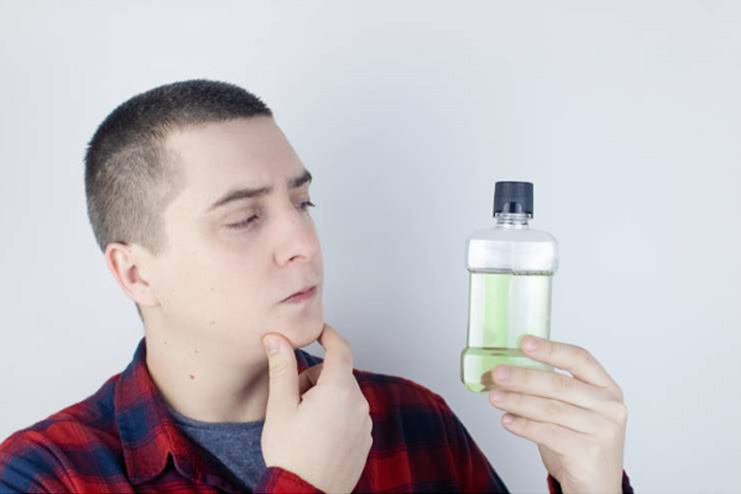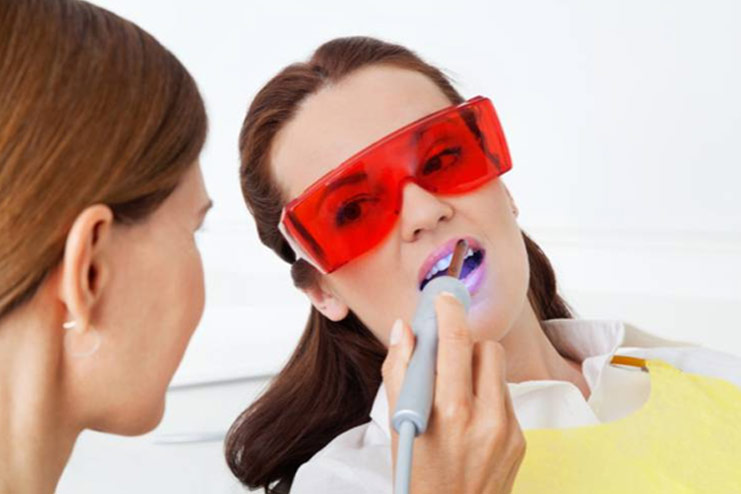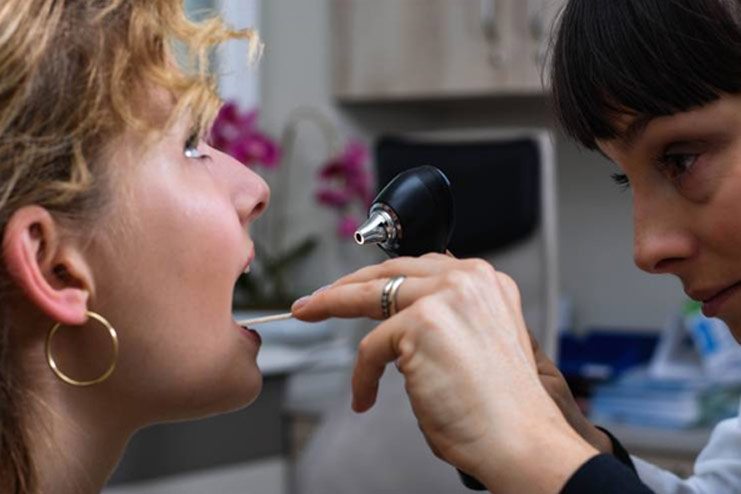Affiliate Disclaimer
Some links in this article are affiliate links. We may earn a small commission if you make a purchase through these links, at no extra cost to you. We only recommend products we find useful to our readersWe rely on our tongues to swallow food and taste it. But have you ever witnessed something off with your tongue, like red spots, a burning sensation, pain, discomfort, or something completely off track? If so, treating tongue problems is necessary for your health.
Most people tend to dismiss reasons for tongue problems as trivial, but if you want to keep enjoying your food and relish it, keep an eye on your tongue’s health.
Here, we will help you find ways to treat tongue problems at home for a better recovery.
Types of Tongue Problems
Before treating tongue problems, you must first focus on the different kinds of tongue problems to identify your symptoms. Some primary types of tongue problems include:
- White tongue
- Red or strawberry tongue
- Black hair tongue
- Sore or bumpy tongue
These are some of the most common tongue problems you will likely experience.
Read: Metallic Taste In Mouth – Know The Causes
What are the Causes of Tongue Problems?

Focus on the causes for targeted treatment and initiate ways to combat it for good. The causes of tongue problems vary depending on the type.
1. White Tongue
The first and most common type of tongue problem is white tongue. This condition is characterized by white spots and a coating that consistently forms over the tongue.
Some of the common causes behind this condition include:
- Leukoplakia: Where the cells in the mouth grow at an unprecedented rate
- Oral thrush: A type of yeast infection that affects the mouth
- Oral lichen planus: Raised white lines with a bumpy appearance on the tongue.
Read: 20 Habits That Wreck Your Teeth – Know What You Are Doing Wrong!
2. Red Or Strawberry Tongue
The next type of tongue problem is characterized by the formation of a red tongue instead of the usual shade of pink. Some people have also witnessed an enlarged appearance of the taste buds around the tongue.
Some of the common causes behind this condition include:
- Vitamin Deficiencies: Lacking folic acid and Vitamin B12
- Geographic Tongue: Characterized by the presence of reddish spots all over the tongue
- Scarlet Fever: A reddish-colored tongue and a high fever characterize scarlet fever. Consult a doctor immediately.
- Kawasaki Syndrome: Generally seen in kids and affects blood vessels in the body
Read: Best Home Remedies For Tongue Sore (Blisters)
3. Black Hairy Tongue
As gross as it sounds, it is a type of tongue problem that happens when the papillae on the tongue enlarge and grow consistently instead of being worn down by the daily activities we indulge in, such as eating, drinking, etc. This causes bacterial infestation in the tongue, thus causing the appearance of the black hairy tongue.
Some of the common causes behind this condition include:
- Trauma: when you accidentally bite into your tongue
- Canker Sores: often categorized as mouth ulcers, caused by excess stress in the body
- Smoking: persistent smoking can cause the disorientation of the papillae.
Read: How to Get Rid of Wavy Tongue
4. Sore Or Bumpy Tongue
Last but not least is the most painful of them all, which is caused by the induction of mouth ulcers, sores, and even bumps and inflammation that further make it a possible option. These painful bumps and ulcers can be the result of several factors.
- Burning Mouth Syndrome: Sudden flaring and tingling sensation without any consistent cause behind the same
- Oral Cancer: The last stage and the most serious one that could stem from multiple reasons
- Medical Conditions: Chronic conditions like diabetes and anemia can be contributing factors
Read: Remedies To Restore Loss Of Taste And Smell
Signs And Symptoms Of Tongue Problems
Focus on the signs and symptoms you might have been experiencing to identify the condition correctly. Targeted treatment of tongue problems helps improve the recovery process.
Some of the common symptoms include:
- Partial or even complete loss of taste
- Inflammation in and around the tongue
- Changes in the color, texture, and appearance of the tongue
- Pain and irritation
- Burning sensation on the tongue
- Formation of white or red patches all across the tongue
- Furry appearance on the tongue
How Do You Diagnose Tongue Problems?
Many people struggle to distinguish between a healthy and unhealthy tongue. Any pain, inflammation, or change in the color and texture of the tongue is a marker of the condition of a tongue issue.
See a dentist or oral medicine professional who can provide an accurate diagnosis.
10 Effective Treatment Methods
Numerous disorders can impact the tongue, essential for taste, speaking, and oral health. Consult a doctor and opt for proper treatment for the condition.
Here, we have curated a list of the most common treatment options that will help you improve your overall tongue and oral health.
1. Antifungal Treatments

Antifungal therapies are necessary to combat illnesses such as oral thrush. Medical professionals effectively treat fungal infections with medications like antifungal mouth rinses or tablets. These medications restore the tongue’s health and prevent future infections.
2. Pain Relief Methods

Doctors frequently recommend over-the-counter pain medications like ibuprofen and acetaminophen to treat tongue discomfort resulting from injuries or inflammation. Topical numbing medications, such as gels or sprays, give localized comfort. Acidic or spicy foods should be avoided whenever possible to alleviate pain.
3. Dietary Changes

Alterations to one’s diet have the potential to improve the health of one’s tongue significantly. It is beneficial to one’s dental health to consume a well-balanced diet that is abundant in vitamins and minerals. To prevent irritation and inflammation of the tongue, it is helpful to steer clear of overly hot, spicy, or acidic meals. Reducing the risk of oral infections is possible by consuming foods rich in probiotics, which can help establish a healthy oral microbiome.
4. Herbal Remedies

Calendula, aloe vera gel, and chamomile tea are some examples of herbal therapies that can provide significant relief from the discomfort associated with irritated or swollen tongues. These natural remedies, with their mild comfort and lack of adverse side effects, are a reassuring choice for many seeking holistic oral care.
5. Home Remedies

Proper tongue cleanliness and reducing minor irritations can be accomplished with straightforward home remedies like mouthwashes containing hydrogen peroxide, baking soda solutions, and saltwater rinses. These treatments are inexpensive and concise, offering instant relief and benefiting dental health.
Read: Health Problems That Salt Water Gargle Can Cure Amazingly
6. Medical Treatments

Treatments such as laser therapy, surgical intervention, or prescription drugs may be required in situations where home care is not sufficient to meet the patient’s needs. These therapies are individualized to meet specific tongue disorders identified by medical professionals, guaranteeing that they are effectively managed and resolved.
7. Avoiding Irritants

If you want to prevent your tongue problems from getting worse, it is crucial to recognize and steer clear of anything that can irritate your tongue, such as tobacco, alcohol, spicy foods, or too-abrasive dental treatments. Reducing exposure to these irritants helps the healing process and lowers the likelihood of problems occurring again in the future.
Read: How To Stop Our Love Affair With Junk Food and Aim at Healthier Foods
8. Oral Exercises

Specific oral exercises given by speech therapists or dentists can enhance the strength and coordination of the tongue muscles. These exercises can benefit individuals who have issues with speaking or swallowing and promote excellent oral function and overall well-being.
Read: 14 Best Oral Health Foods – Take Care of Your Pearly Whites!
9. Prescription Medication

The underlying causes of tongue disorders, such as infections or autoimmune illnesses, may require administering prescription medications such as antibiotics, antifungals, or corticosteroids. Complying with the recommended medication schedules is essential for successful treatment and management.
10. Coconut Oil Pulling

Coconut oil pulling, a natural method for maintaining dental hygiene, involves swishing a spoonful of coconut oil in your mouth for ten to fifteen minutes. This process helps reduce bacteria by binding the oil to harmful microbes, which are expelled when you spit out the oil. Because lauric acid is the primary component of coconut oil, its antibacterial qualities also help to reduce plaque and fight oral bacteria.
Preventive Measures for Tongue Health
Preventative measures are a significant factor in keeping the tongue healthy. A healthy tongue contributes to better taste and digestion and helps prevent infections and other oral issues. Here are some practical tips and oral hygiene practices to keep your tongue healthy:
Stay Hydrated: Proper hydration is critical to maintaining tongue health. Drinking plenty of water throughout the day helps to keep the tongue moist and aids in the natural cleansing process, empowering individuals to take proactive steps to prevent dry mouth and associated discomfort.
Stress Management: Stress management strategies such as yoga, meditation, or deep breathing exercises can indirectly improve tongue health. By enhancing immune function and preventing stress-related dental disorders, these tactics empower individuals to take control of their oral health.
Maintaining Oral Hygiene: Maintaining a high level of oral cleanliness is the cornerstone of tongue health. Regularly brushing the tongue with a soft-bristled toothbrush or using a tongue scraper is a powerful way to eliminate bacteria and debris, preventing issues such as a coated tongue or bad breath. Flossing, antibacterial mouthwash, and regular dental checkups are also crucial for early detection and prevention of potential problems.
Avoid Tobacco Products: Smoking and chewing tobacco might negatively impact tongue and general dental health. These behaviors raise the risk of infections, tongue discoloration, and oral cancer. Giving up smoking will lower your risk of developing major health problems and greatly enhance the condition of your tongue.

When to Consult a Specialist
If tongue problems persist despite using home health remedies, seek the advice of an oral medicine professional, such as a dentist, an oral surgeon, or an otolaryngologist. Specialists can carry out comprehensive exams, provide precise diagnoses, and recommend appropriate therapies based on each patient’s requirements.
Conclusion
When treating tongue problems, know that the possibilities are extensive. With so many fantastic benefits of these remedies, it isn’t surprising that you can effectively recover without any issues. The only thing you need to remember is to ensure that you adhere to the steps involved.
References
- https://my.clevelandclinic.org/health/diseases/24735-tongue-problems
- https://www.medicinenet.com/tongue_problems/article.htm
- https://www.healthline.com/health/sore-tongue-remedy#causes
- https://www.medicalnewstoday.com/articles/tongue-ulcer#prevention
- https://www.healthline.com/health/tongue-problems-2#causes
- https://www.health.com/condition/oral-health/tongue-health-conditions
- https://www.nyp.org/healthlibrary/articles/tongue-problems
- https://health.clevelandclinic.org/how-to-heal-a-burnt-tongue
- https://www2.hse.ie/conditions/mouth-ulcers/
- https://www.simplysupplements.co.uk/healthylife/teeth-and-gums/what-does-your-tongue-say-about-your-health
-
Oct 2020Written by Somapika D
-
Aug 2024Edited by Ankita
In this Article
















